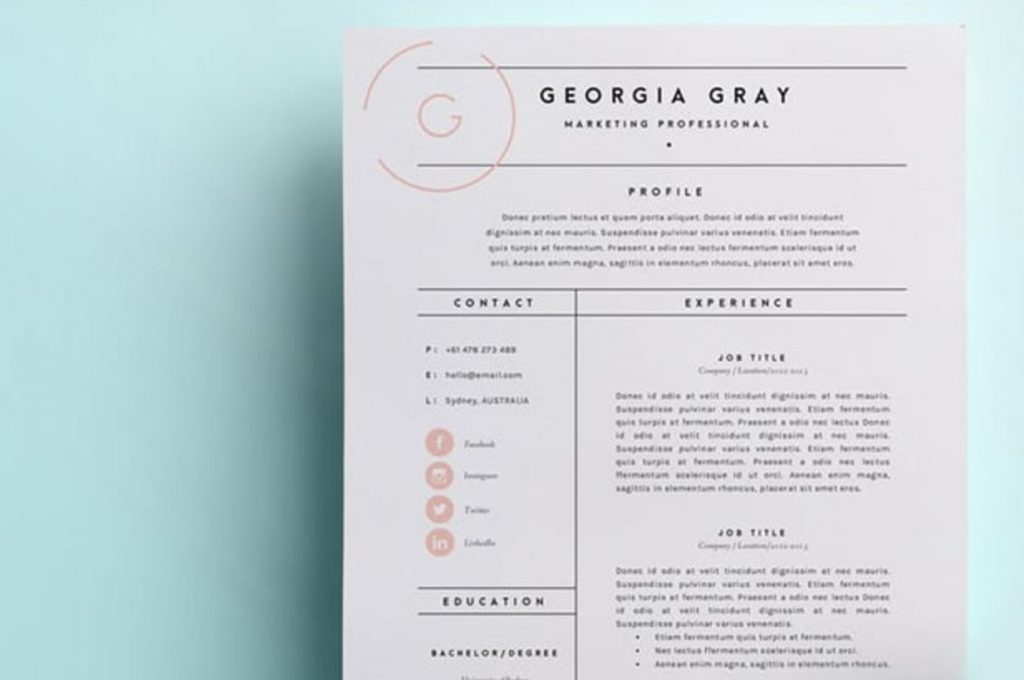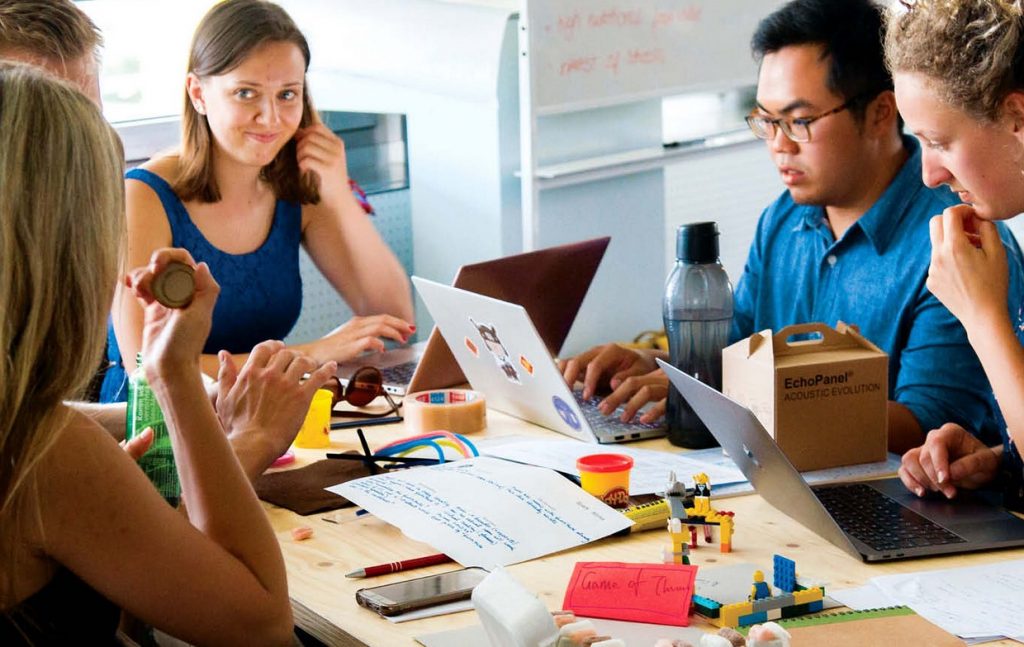
Whether you’re looking for a job whilst studying at University or you’re taking your first step onto the career ladder, writing a CV without work experience can be difficult. Most employers expect around two pages of content in the UK or one page in the US – with evidence that you have the skills they’re looking for.
Fortunately, paid work isn’t the only way to demonstrate skills. There are plenty of ways you can show that you meet the job specification, without having ever been on an employer’s payroll. Beside specific technical skills, many desirable workplace skills are transferable, meaning that they can be acquired through education, sports, hobbies or simply though general life experience.
Here are our top suggestions:

Attendance records
Employers want to know that you’ll show up, on time, reliably. For most people, there are plenty of times where they’ve done just that, outside of work! For example, you could quote your school, college or university attendance records, or attendance at a sports club, dance group or voluntary project.
Training courses/qualifications
Training courses are a great way to show that you’ve built key skills on your CV. If you’re writing your CV and you’re struggling to prove a particular skill such as IT literacy, you can even look for a free online course that you can take right now.
Qualifications are in themselves good evidence of certain skills, such as numeracy. Employers will often regard a GCSE at Grade C or above as evidence of adequate literacy and numeracy skills for a basic job.
Training doesn’t always have to lead to a qualification. For example, you might have been trained in customer skills, leadership or communication for a voluntary project, or you might have received coaching training whilst supporting a sports club.

Projects you completed at school
Schools often include practical projects as part of their curriculum to help you get hands-on experience. These might be at lunchtimes or after school – such as a group tasked with designing something for a competition. Alternatively, they might be part of your course, perhaps requiring you to explore a topic and write a concise report, prepare a presentation or consolidate results in a spreadsheet. Such projects can demonstrate a very wide range of skills: conducting your own research, concise written communication, IT literacy and more.
Freelancing
Freelancing is a great way to test out and hone your skills in the real world, with paying clients. Sites such as peopleperhour.com and fiverr.com allow you to create adverts for what you can do, and collect reviews from clients you’ve worked for. These reviews can be used as testimonials on your CV.

Recommendations and endorsements
LinkedIn allows you to collect endorsements from people you know for your skills. In addition, people you’ve done work for can write a recommendation which you can then quote on your CV. In a small survey by Vault.com, 7 out of 10 recruiters had positive things to say about recommendations and endorsements.
Start by creating a strong network of contacts who have knowledge of your skills. For example, these might be your tutors, fellow students who you’ve worked closely with, family members you’ve worked for, people you’ve freelanced for, people you’ve volunteered for or with, people who you’ve worked with on a sports project, or people in your local community. Make sure your profile is complete and up-to-date before reaching out for a recommendation or endorsement.
Casual work
Casual work for neighbours, friends and people in your local community such as babysitting, cleaning cars and mowing lawns is still work. People are paying you to complete a service to a particular standard. If you’ve completed this type of work and have satisfied customers, ask them for a line or two to include on your CV, as a testimonial.

Work for the family business
If you’ve helped out in the family business, even without pay, this is still a valuable type of experience to include. You might have helped in a shop or on the farm, assisted with bookkeeping, delivered leaflets or designed marketing materials, for example. Each of these examples demonstrates that you’ve used a valuable skill that can be transferred to a paid employment position. If you’ve had any particular results from your efforts, be sure to include these on your CV too.
Volunteering
Volunteering brings a wealth of opportunities to gain and practice valuable skills – both hard and soft. CABA explains that volunteers must be good team players, able to work under pressure with good communication skills, creativity and flexibility. Volunteers must usually have good time management, the ability to make decisions, good problem-solving skills and the ability to be a good leader. All of these skills are fundamentals for the workplace.
Voluntary work may be through a charity, but it may also be through a less formal project, such as meeting and spending time with the elderly, or simply helping a less able person out with their home or garden.

Completion of awards/programmes
Youth programmes can be an excellent way to demonstrate the development of your skills. The Duke of Edinburgh award, for example, has four sections: volunteering, physical, skills and expedition, plus an additional residential section for the gold award. Completion of this programme requires you to build and use a whole range of skills to a good standard, which further provide solid evidence for your CV.
Community projects
Taking part in community projects not only showcases a range of skills to prospective employers but in addition, shows that you are a responsible individual who cares for those around them.
Community projects allow you to “develop your skills and build on your strengths, support your professional development and build your CV; and deliver outcomes with a positive social impact in the local community,” explains York University.
Time-keeping, reliability, teamwork and communication are all frequent mainstays of a community project – and you may be able to acquire a reference or testimony as to these skills, following the project completion.

Helping in the home
Running a household is no easy task and over the years, society has come to understand just how challenging this role is! In fact, being a ‘stay-at-home’ parent is now recognised as having the same value as paid employment, in certain areas of UK law. If you’ve been at home for a period of time with children or helped your parent(s) out with younger siblings, this can provide a valuable entry for your CV. You’ve likely demonstrated good organisational skills, the ability to multi-task, time management skills, the ability to work under pressure, decision making, self-motivation and much more.
Coaching / mentoring in sports or creative club
If you’ve helped out coaching younger players in a local sports or creative club (e.g. dance, drama), you’ve likely picked up and developed a whole range of transferable skills. Good spoken communication is essential, alongside perseverance and patience, particularly if you are working with younger participants. The ability to motivate and inspire confidence is a mainstay, as is a sensitive and supportive approach. You may also have picked up first aid and/or health and safety skills.

Blogging / creating a website
Blogging or creating your own website is a great way to showcase your knowledge written communication skills. It may also help you show off your ability to think critically, solve a problem, debate an issue, research a topic, persuade, motivate, be creative and so much more. Launching your own blog or website also demonstrates your ability to promote yourself, network and attract readers, through SEO or marketing. On top of all this, there are a very wide range of additional skills that blogging can potentially demonstrate, such as photo editing, CSS, HTML, planning, analytics, negotiation and more.
If you’re sharing a blog or website on your CV, make sure all of the content is professional and suitable for prospective employers to view.
Own business
If you’ve set up a micro business, this can demonstrate a range of skills, regardless of whether or not it is incredibly successful. It may show that you have a passion for a particular topic or problem, or creativity in creating something new. It might show business skills such as the ability to research, identify a gap in the market, source and then sell products, or it may suggest creativity and flair. Don’t worry too much if your business is in its early stages or a hobby project. Focus on what you’ve achieved so far and what skills you’ve had to use to reach that milestone.

Using social media
Most of us use social media for fun but using the right platform can also demonstrate a wide range of skills to prospective employers. For example, Twitter is a useful way to get involved in a particular industry, by sharing relevant stories, posting your thoughts on various topics and commenting on developments. It also shows that you’re up-to-date in your area of expertise. Don’t forget to share your Twitter handle on your CV and to ensure that all past posts are appropriate for would-be employers to see.
In conclusion
The above list provides just some of the ways that you can include alternative types of experience on your CV in 2024. It is certainly not exhaustive. The key is to consider what you have done in other areas of your life where skills that are important to the employer might be demonstrated. Add third party endorsements where you can – a testimonial, grade, promotion, added responsibilities or actual results such as website visits. You can find a range of CV examples for students and those with little work experience on CVTemplateMaster.com.
















